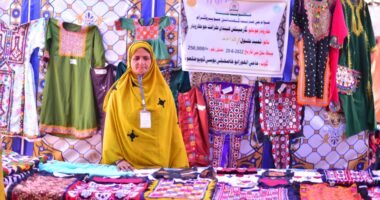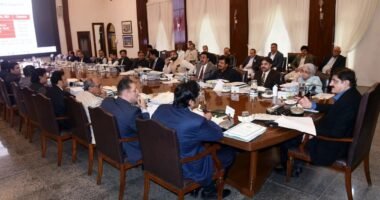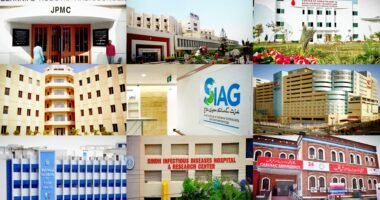
Karachi, Sindh – In a crucial step towards securing international support for the province’s development priorities, the Government of Sindh, in partnership with the United Nations, hosted a high-level briefing for global development partners. The event focused on the devastating impacts of climate change, ongoing flood recovery efforts, and urgent needs in key sectors such as education, water, and infrastructure.
Syed Nasir Shah, Minister for Planning and Development, delivered the briefing alongside Najam Shah, Chairman of the Planning and Development Department (P&D). Together, they outlined Sindh’s major development challenges, stressing the urgency of continued international collaboration to support the province’s recovery and long-term sustainable growth.
Climate Change: An Existential Threat to Sindh
Minister Nasir Shah highlighted the growing impact of climate change on Sindh, underscoring the province’s vulnerability as Pakistan ranks fifth globally among countries most affected by climate-related disasters. Sindh has experienced a series of catastrophic floods, including in 2010, 2012, 2020, and 2024, compounded by severe droughts in 2013-14 and 2018-19. These recurring disasters have left a profound impact on the province’s infrastructure, agriculture, and economy, with millions of people losing their livelihoods.
“The increasing frequency of extreme weather events, such as floods and droughts, poses a direct threat to the lives and livelihoods of our people,” Shah said, noting the resulting surge in poverty levels and declining living standards. “We need urgent international support to strengthen our resilience to climate change and rebuild communities devastated by these disasters.”
The Devastation of the 2022 Floods
A central focus of the briefing was the catastrophic 2022 floods, which submerged 70% of Sindh’s area. Shah detailed the human and economic toll: 2.1 million homes destroyed, 1.23 million people displaced, and 11 deaths with over 8,400 injuries. The floods also wreaked havoc on essential infrastructure, destroying 20,000 schools, 3.77 million acres of crops, and 8,413 km of roads.
The floods’ devastating impact left the province facing an estimated recovery cost of $11.57 billion. While the international community pledged $3.53 billion in aid, a funding gap of $8.04 billion remains, hindering full recovery efforts. Shah urged international partners to help close this gap, highlighting the urgent need for financial resources to restore homes, infrastructure, and essential services.
Key Development Priorities and Ongoing Efforts
The Sindh government is already implementing a number of recovery programs, including a large-scale housing project to rebuild homes for flood victims. The project will construct weather-resistant homes, provide sanitation facilities, install solar power systems, and digitize land records. Shah highlighted that 800,000 women will directly benefit from the housing project, marking a significant step toward gender-inclusive recovery.
To date, international donors have provided $5.67 billion to Sindh, including $866.1 million in grants and more than $4.8 billion in loans. With these funds, 30 small projects have been launched from international aid, and 27 projects are underway with loans.
Strengthening Key Sectors: Education, Agriculture, and Water
Beyond recovery, the Sindh government is focused on long-term development, particularly in education, agriculture, and water management. Shah emphasized the importance of addressing the 5.6 million children currently out of school in Sindh. The government is rolling out a comprehensive rehabilitation program for schools and a teacher training initiative to enhance the quality of education.
Agriculture, which forms the backbone of Sindh’s economy, is also a priority. The Minister outlined efforts to improve irrigation systems, build new water reservoirs, and revitalize fisheries, livestock, and poultry industries. These initiatives are aimed at boosting agricultural productivity and food security, particularly in the wake of the floods.
Water scarcity, exacerbated by climate change, remains one of the province’s most pressing challenges. The government has launched several initiatives under the Sindh Climate Change Policy 2022, including large-scale afforestation programs and efforts to restore water resources. Sindh is seeking international funding for new water reservoirs and to support innovative solutions for sustainable water management.
Disaster Resilience and Renewable Energy Projects
The Sindh government is also strengthening its disaster management capacities. The Provincial Disaster Management Authority (PDMA) is being bolstered to improve disaster preparedness and response. Shah highlighted the importance of building resilience to future natural disasters, which will require continued investment and technical support.
In the energy sector, the government is pushing for the development of clean and renewable energy projects, including solar, wind, waste-to-energy, and coal gasification. These projects are vital to ensuring the province’s energy security and supporting sustainable development.
Addressing WASH Needs in the Aftermath of Floods
The catastrophic floods of 2022 left severe gaps in the WASH (Water, Sanitation, and Hygiene) sector. Shah made an urgent appeal for funding to restore essential services, including 799 water supply schemes and 444 drainage systems. The government also needs capital to install 1,212 Reverse Osmosis (RO) and Ultra Filtration (UF) plants to provide clean drinking water to affected communities.
“Timely intervention is crucial to avoid a public health crisis,” Shah warned, emphasizing the need for urgent international support to address these gaps and ensure clean water and sanitation for flood-affected populations.
A Call for Continued International Support
While commending the support already received from international donors, Shah reiterated that much more is needed to address the multi-sectoral challenges facing Sindh. The government’s recovery and development plans will require sustained financial and technical support in the coming years.
“The road to recovery is long, but with continued global partnership, we are confident that Sindh can overcome its challenges and build a prosperous, resilient future for its people,” Shah concluded, stressing the importance of international solidarity in addressing the province’s urgent needs.
Conclusion
The event underscored the deep commitment of the Sindh government to tackle climate change, restore critical infrastructure, and improve the livelihoods of its people. By engaging with international development partners, Sindh is positioning itself to recover from past disasters while preparing for the challenges of the future. The briefing served as a platform for fostering dialogue and securing essential funding to achieve these ambitious goals, marking a key step toward the province’s sustainable recovery and development.












